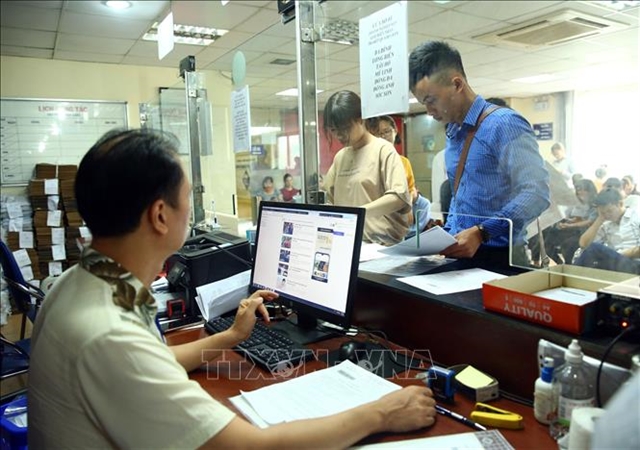The database will cover all types of businesses in Việt Nam, including private companies, state-owned enterprises and foreign-invested businesses.

HÀ NỘI — Deputy Prime Minister Nguyễn Chí Dũng on September 17 signed Decision No. 2074/QĐ-TTg, approving the plan to build a National Business Database.
It will cover all types of businesses in Việt Nam, including private companies, State-owned enterprises and foreign-invested firms.
The database will combine six main sources of information: business registration (primary source), tax, import-export, social insurance, credit and labour and employment.
The aim is to monitor business activities, improve government support, make information more transparent and develop big data to support citizens and businesses in investment, production and trading activities.
In 2025, a basic version of the database will be created with four key sources: business registration, tax, import-export and social insurance. It will give important information about the health of businesses and entrepreneurs.
A Business Health Index will also be launched to measure both financial and non-financial performance. The database will connect with national population and other databases to help authorities track problems and improve supervision.
In 2026, the database will be upgraded to include credit and investment data. Artificial intelligence, machine learning and big data tools will be applied to analyse business activities more effectively.
From 2027 to 2030, it will grow to include more information, such as labour, intellectual property, innovation, technology, digital transformation and sustainability. Open data platforms will let citizens and businesses search for information easily, saving time and costs while increasing transparency.
The Business Health Index will also be updated regularly with real-time data.
The plan also identifies six key tasks, including completing the legal framework, building the database architecture, developing the Business Health Index, upgrading IT infrastructure, managing and operating the database and applications, and investing in IT human resources, including data analysts, data scientists and cybersecurity experts.
The Ministry of Finance will oversee the management, operation and security of the database, while the Ministry of Public Security will connect it with the National Integrated Database. This integration aims to form a comprehensive business big data system by 2030. — BIZHUB/VNS





